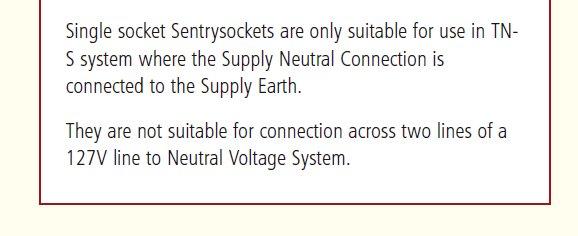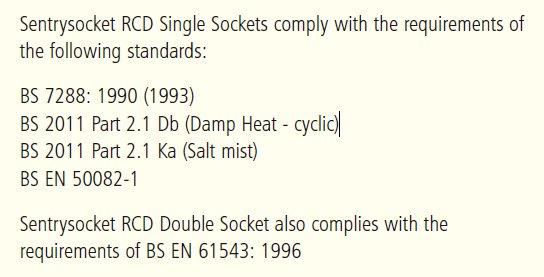- Joined
- 27 Jan 2008
- Messages
- 23,805
- Reaction score
- 2,691
- Location
- Llanfair Caereinion, Nr Welshpool
- Country

I was looking at SentrySocket an MK product and noted these should not be used with a TT system. Before 2008 I am sure I have fitted a few of these sockets for where it was likely to be used to power items used outside and sure some of the houses were TT supplies.
OK likely there was a 100ma S type as well but I had never realised these were for TN-S systems only.
Also question use of double filtered sockets I have used on rings yet note now only rated at 13A for pair so really should be supplied from a FCU.
All would have been done pre-2008 and now no records of work and all done while employed cards in.
So two questions should I worry about the errors and second have RCD sockets always been like this or is it something new?
OK likely there was a 100ma S type as well but I had never realised these were for TN-S systems only.
Also question use of double filtered sockets I have used on rings yet note now only rated at 13A for pair so really should be supplied from a FCU.
All would have been done pre-2008 and now no records of work and all done while employed cards in.
So two questions should I worry about the errors and second have RCD sockets always been like this or is it something new?





